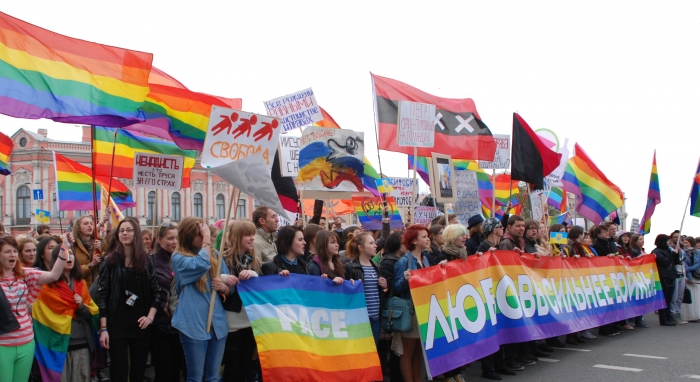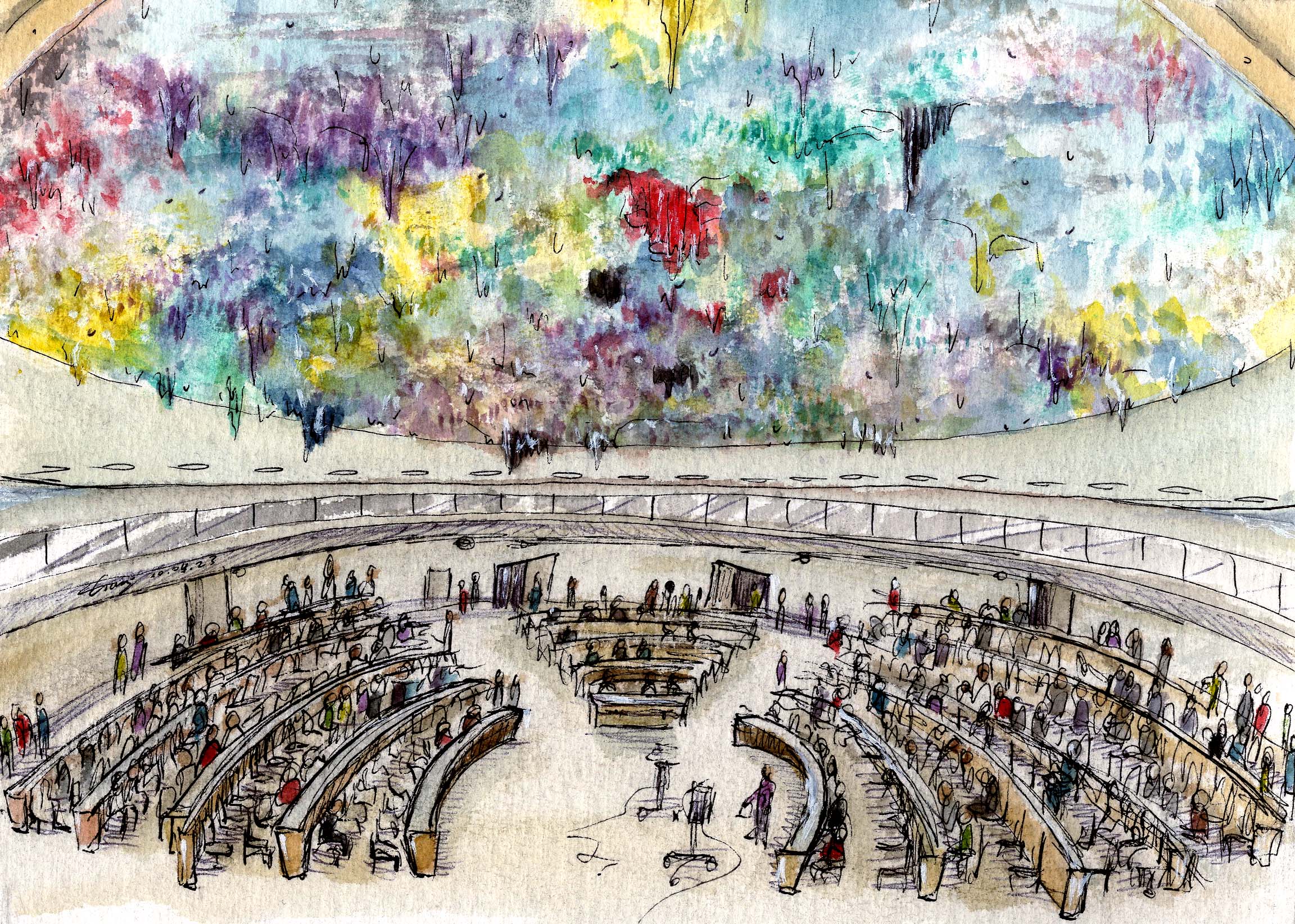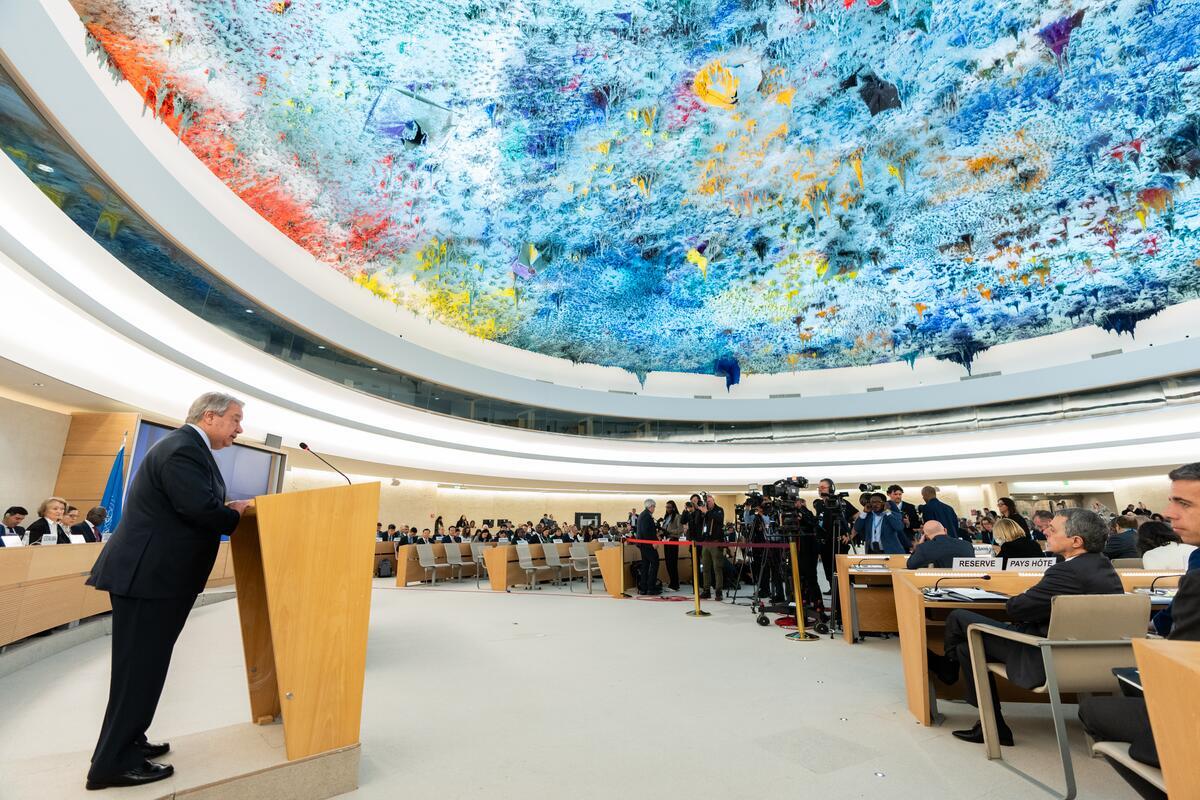The undersigned civil society organisations mark the conclusion of the UN General Assembly’s (GA) 79th Third Committee session with the following observations on outcomes. We urge all States to implement the commitments they have made during this session to their full extent.
THEMATIC OUTCOMES
Statements
We welcome the joint statement on reprisals led by Ireland and Uruguay on behalf of a cross-regional group of 80 countries. The statement calls on all States and the UN to prevent, respond to, and ensure accountability for cases of intimidation and reprisals against those who engage or seek to engage with the UN, highlighting unique challenges faced by young activists, women human rights defenders and Indigenous people. We urge more States to sign on to such statements in the future.
Resolutions
A new resolution on Working Methods of the Third Committee led by the Africa group was adopted by consensus that sought to address the Committee’s workload, including by streamlining its work. Amendments to two paragraphs were proposed orally by two separate groups of States that sought to maintain some existing Committee processes, but were ultimately unsuccessful. This resolution has crucial implications beyond the Committee itself, as elements in the text seek to impact the functioning of the Third Committee as well as the engagement of other UN human rights bodies and mechanisms with the Committee. We regret that no references were included in the text to the role of civil society in the work of the Third Committee. We also regret that the process for this resolution was unduly rushed and lacked adequate and meaningful consultation with relevant stakeholders.
We welcome the adoption of the resolution on Moratorium on the use of the death penalty led by Argentina and Italy on behalf of an Inter-Regional Task Force of States. A record number of 131 States voted in favour of the text (this is the highest recorded vote in support of the resolution, surpassing the milestone of two-thirds of all UN Member States), while 36 voted against and 21 abstained. The text reiterates calls in previous resolutions, including to establish a moratorium on executions with the view to abolishing the death penalty. It also recalls ‘the duty of States, regardless of their political, economic and cultural systems, to promote and protect all human rights and fundamental freedoms,’ the need to improve the conditions in detention for those on trial for capital crimes or on death row, by ensuring that treatment of prisoners complies with international human rights standards.
We welcome the adoption by a vote of the resolution on Extrajudicial, summary or arbitrary executions (led by Sweden on behalf of a group of Nordic States), which aims to uphold the right to life, liberty and security and acknowledges that impunity is a major contributor to executions. This year, the resolution included important new language on strengthening investigations of femicides. We welcome that the resolution once again highlighted the targeting of specific groups, including killings of persons belonging to national or ethnic, religious and linguistic minorities, indigenous communities, human rights defenders, lawyers, journalists or demonstrators, or because of their sexual orientation or gender identity. Critically, we welcome the rejection by a vote of an oral amendment attempting to remove the reference to ‘sexual orientation and gender identity’ in that listing.
We welcome the consensus adoption of the resolution on the right to privacy in the digital age led by Brazil and Germany. This is part of a series of resolutions adopted by the General Assembly and Human Rights Council since the Snowden Revelations of unlawful mass surveillance by the United States and other States in 2013. This resolution harnesses the momentum seen in other resolutions, calling on governments to refrain from or cease using artificial intelligence applications that are impossible to operate in compliance with international human rights law or that pose undue risks to the enjoyment of human rights. We encourage States to ensure that future resolutions call on all States to refrain from using biometric technologies for mass surveillance, to implement comprehensive human rights safeguards for social media monitoring and digital public infrastructure, and to refrain from the targeted use of spyware (building on calls in relevant resolutions) in order for the resolution to maintain its relevance and applicability in a vastly changing digital landscape.
We decry the adoption by consensus of the Draft United Nations Convention Against Cybercrime, or UN Cybercrime Convention (UNCC), a binding instrument that would increase surveillance powers without adequate human rights safeguards. Initiated by the 2019 Russian Federation-led Third Committee resolution, the UNCC text was finalised this August by consensus by an Ad-Hoc Committee. The UNCC requires States to establish broad electronic surveillance powers and cooperate on a wide range of crimes, including those not involving information and communication systems. The UNCC will allow governments to collect electronic evidence and share it with foreign authorities for ‘serious’ domestic crimes (those carrying a sentence of four years or more). This could include activities protected by international human rights law that some States criminalise, such as same-sex relations, criticism of the government, investigative journalism, protests and whistleblowing. We urge States to not ratify the UNCC, to adhere to international human rights law and demand stronger safeguards for human rights in future deliberations, including on an optional protocol.
We welcome the adoption by consensus of the resolution on the Human rights treaty body system (led by Iceland). While we regret that States again merely took note of (rather than welcomed) the UN Secretary-General’s biennial report on the state of the treaty body system, we welcome the reference to digital technologies for all stakeholders in the activities of the treaty bodies. We urge all States to follow through with their reaffirmation in this resolution of the formula contained in General Assembly resolution 68/268, and allocate corresponding financial and human resources in the Fifth Committee that the treaty bodies require to function effectively.
The resolution on Inclusive development for and with persons with disabilities, facilitated by the United Republic of Tanzania and the Philippines, was adopted by consensus. We welcome the resolution’s recognition of the risks of exposure of children with disabilities to cyberstalking and sexual exploitation and abuse, which disproportionately impacts girls with disabilities. We further welcome the resolution’s call on Member States to enhance efforts to facilitate international trade of assistive technologies to address inequalities experienced by persons with disabilities. We regret however that the resolution does not recognize the role of international trade agreements in perpetuating some of those inequalities.
The resolution on the Follow-up to the Second World Assembly on Ageing, facilitated by Argentina, was adopted by consensus. We welcome that the resolution notes the completion of the work of the Open-Ended Working Group on Strengthening the Human Rights of Older Persons, in view of the Working Group’s adoption of Decision 14/1. This decision recommends that Member States consider options to address possible gaps in the protection of the human rights of older persons, including an international legally binding instrument to promote, protect and ensure the recognition and the realisation, on an equal basis, of all human rights of older persons.
Gender related resolutions
The resolution on Trafficking in women and girls led by the Philippines was adopted by consensus. Although one paragraph regarding the Rome Statute and the International Criminal Court was voted on, it ultimately remained in the resolution. We welcome the resolution and the maintenance of agreed language on multiple and intersecting forms of discrimination, as well as the addition of disability-sensitive protection and approaches. We regret the addition of text on the sale of children in the context of commercial surrogacy and are disappointed that language on survivors was not mainstreamed across the text (in place of the language on victims). We also regret that the text does not explicitly call for decriminalisation of sex work.
The resolution on Child, early and forced marriage (CEFM) was adopted by consensus. We welcome the retention of agreed language recognising the need to ensure sexual and reproductive health services that respond to the specific needs of women and girls subjected to CEFM, and urging States to address multiple and intersecting forms of discrimination to prevent and eliminate CEFM. We especially welcome the addition of informal unions in recognising that the practice of CEFM may include arrangements not formalised or recognised by religious, customary or State authority. However, we are disappointed that the text does not include a reference to sexual and reproductive health and rights or comprehensive sexuality education, and that additional references to multiple and intersecting forms of discrimination, sexual and reproductive health services, and full, equal and meaningful participation of women and girls were omitted in the final text despite significant support.
The resolution on the Intensification efforts to eliminate obstetric fistula, presented by Senegal on behalf of the African Group, was adopted by consensus and co-sponsored by 125 Member States. We welcome new references on universal health coverage and CEFM, slow progress in reducing maternal deaths, other maternal morbidities and childbirth injuries, and the need for increased financial commitments to eliminate obstetric fistula. We regret that references to sexual and reproductive health and rights, the importance of accessibility, affordability, acceptability and quality sexual and reproductive health (SRH) information and services, comprehensive sexuality education, sexual and gender based violence’s (SGBV) health services were not retained in the final draft despite strong support by many States. We are also concerned by the deletion of a reference to maternal mortality and addition of language focusing only on newborn health care interventions, which appear to prioritise infant care and present a one-sided focus on services for newborn, infant and children, without adequately addressing prevention of maternal mortality and morbidity.
The resolution on Intensification of efforts to prevent and eliminate all forms of violence against women and girls in the digital environment (VAWG) facilitated by France and the Netherlands was adopted with 170 Member States voting in favour, one against (Argentina), and 13 abstentions. We welcome the resolution, as well as the retention of agreed language such as multiple and intersecting forms of discrimination, femicide, gender-responsive, sexual and gender based violence, and sexual and reproductive health. However, we regret that there is no reference to technology facilitated gender-based violence, only one reference to women in all their diversity, and that little progress was made to push the agenda forward.
OUTCOMES ON COUNTRY SITUATIONS
Statements
Albania, Australia, Chile, Japan, Spain and the UAE delivered a joint statement on the situation of women and girls in Afghanistan on behalf of 83 countries. The statement expresses concern for the ongoing institutionalised and systematic discrimination perpetrated against women and girls in Afghanistan and called on the Taliban to reverse all edicts and restrictions, which may amount to gender persecution. The statement reminds the Taliban of their obligations under international law, including those enshrined in the ICCPR, ICESCR, CEDAW, and the CRC. The statement also underlined the importance of seeing justice and accountability for these human rights abuses.
A joint statement on the human rights situation in Xinjiang and Tibet was delivered by Australia on behalf of 15 countries about ongoing serious human rights violations in China, particularly in the Uyghur region (Xinjiang) and Tibet. The statement notes the 2022 assessment by the Office of the High Commissioner for Human Rights (OHCHR) which concluded that the scale of the arbitrary and discriminatory detention of Uyghurs and other Muslim minorities in Xinjiang ‘may constitute international crimes, in particular crimes against humanity,’ as well as similar findings and recommendations by independent UN human rights experts including the CERD’s Urgent Action decision on Xinjiang. The statement called on China to uphold its international human rights obligations, to fully implement all UN recommendations including from the OHCHR’s assessment, Treaty Bodies and other UN human rights mechanisms, including releasing all individuals arbitrarily detained in both Xinjiang and Tibet, urgently clarifying the fate and whereabouts of missing family members and to allowing unfettered access to Xinjiang and Tibet for independent human rights observers including the UN.
Resolutions
We welcome the adoption of the resolution on the situation of human rights in the Syrian Arab Republic. The resolution highlights ongoing human rights violations and abuses by the Syrian government and non-state actors, as well as the deterioration of the humanitarian situation. It calls for unhindered humanitarian access to all areas of need, including by extending for as long as humanitarian needs require all cross-border aid deliveries. The resolution extensively references the ongoing work of the Commission of Inquiry (COI) on Syria, in particular their recent report which found reasonable ground to believe that the Syrian government continued arbitrary detentions, torture and enforced disappearances in 2024. The resolution urges all States to respect the principle of non-refoulement, highlighting the COI’s findings that Syria is not safe for refugee returns.
We welcome the adoption of a resolution on the situation of human rights in the Islamic Republic of Iran by a vote of 77 in favour, 28 against and 66 abstentions facilitated by Canada with 49 co-sponsors. The resolution condemns the alarming increase in the application of the death penalty, including to ethnic and religious minorities, widespread restrictions on rights to freedom of peaceful assembly and association, of opinion and expression and of thought, conscience, religion or belief, including persecution of persons belonging to recognised and unrecognised religious minorities, the repression of women and girls, including discriminatory compulsory veiling laws and policies. It urges Iran to eliminate all forms of systemic discrimination and violence against women and girls and calls for the release of human rights defenders, journalists and those in detention for taking part in peaceful protests. It also expresses concern on the lack of accountability and justice for long-standing rights violations which perpetuates systemic impunity, including ongoing enforced disappearances, extrajudicial executions and the destruction of evidence and grave sites.
The resolution on the human rights situation in the Democratic People’s Republic of Korea (DPRK) was adopted by consensus which sends a strong message to the North Korean government that countries across the world are united in condemning its ongoing systematic, widespread and gross human rights violations. The resolutions’ call for a high-level meeting of the UN General Assembly, with the participation of civil society, creates an important opportunity to discuss DPRK’s worsening human rights situation and explore how its repression and abuses are interlinked with other international peace and security issues on the Assembly agenda. The resolution stresses the connection between rights abuses and the diversion of DPRK’s resources to pursue nuclear weapons. However, we regret that the resolution did not request the General Assembly to mandate a team of experts to monitor and report on those linkages and we urge for this inclusion in the next resolution.
The resolution on the situation of human rights of Rohingya Muslims and other minorities in Myanmar, again adopted by consensus, reiterates the Committee’s strong condemnation of all human rights abuses against Rohingya Muslims and other minorities in the country. The resolution includes new language calling on the authorities to end internet shutdowns and expressing grave concern about the Myanmar military’s abusive conscription of Rohingya Muslims. We welcome the resolutions’ request for the UN Special Envoy to brief Member States every six months, which will offer States an opportunity to focus greater attention on this neglected human rights crisis. However, we regret that the resolution fails to include stronger language calling on Member States to stop transfers of arms and jet fuel to the military junta.
Civil society access
While we welcome the action by some States to invite civil society organisations to join informals as observers this session, it was disappointing that only a handful of States extended this invitation. This critical barrier to civil society access to Third Committee negotiations deprive the Committee of civil society’s technical expertise and mean that its outcomes fail to leverage the contributions of a crucial stakeholder in promoting the implementation of human rights.
SIGNATORIES
Access Now
Amnesty International
Article 19
Center for Reproductive Rights
ChildFund Alliance
CIVICUS
Fòs Feminista
Human Rights in China
Human Rights Watch
International Service for Human Rights
Outright International
Women Deliver
Download as PDF




